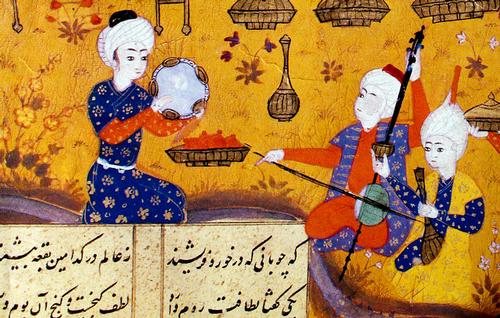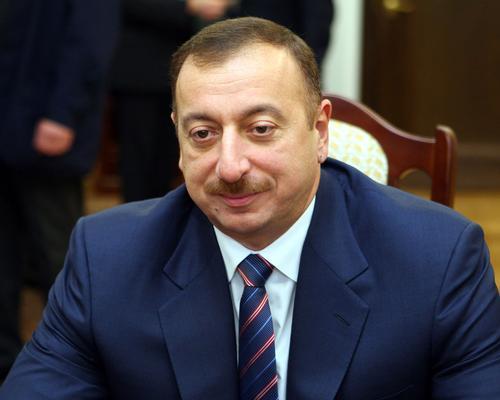AZERBAIJAN
History

History
History
Azerbaijan has been occupied by foreign powers for most of its history. Around 640 AD Arab armies entered the area- which also introduced Islam- followed by Mongol troops and from the 11th century to the 15th century by Turkish rule. The result of this Turkish rule was that the Azeris adopted a Turkish language.
 Azerbaijan Music Group 16th centuryPhoto: Public domain
Azerbaijan Music Group 16th centuryPhoto: Public domain
From the end of the 16th century, the Ottoman Empire, the Persian Empire and the Tsarist Russia fought for hegemony in the region. After that, the Iranian influence increased. From the 18th century on, Russia became an increasingly powerful power, seeking and gaining influence in the Caucasus. The 1828 Treaty of Tourkmanchai established the influence over the area: the northern part (roughly the contours of present-day Azerbaijan) was assigned to Russia, while the southern part was assigned to Iran.
Azerbaijan was independent from 1918 to 1920. Then it became part of the Soviet Union. In 1988 serious tensions arose between Azerbaijan and the Armenian enclave Nagorny Karabakh, which is located in Azerbaijan. This led to outbreaks of violence against ethnic Armenians. When the situation got out of hand, Soviet troops bloodily attempted to restore order, fueling anti-Russian sentiment in Azerbaijan.
In 1991 Azerbaijan became independent. The first years of independence were characterized by fierce rivalry between rulers, economic malaise and the ongoing quarrel over the Nagorny-Karabakh enclave. After mass protests over the defeats in the war with Armenia, the first elected president Mutalibov fled to Moscow. His successor, President Elchibey, appointed former KGB chief Heydar Aliyev parliament speaker. However, President Elchibey was driven out by an advancing rebel army led by warlord Surat Husseinov. Heydar Aliyev then made a pact with this warlord, who was appointed prime minister on that occasion. Presidential elections were called after a popular referendum in which the people lost faith in the president who had fled. On October 3, 1993, Aliyev was first elected in direct presidential elections. He remained in power until 2003, after which he passed power from his sickbed to his son Ilham. He easily won the presidential elections in October 2003 and was immediately appointed president.

In November 2005, the ruling New Azerbaijan Party won the parliamentary elections by a big margin. International observers question the democratic content of the elections. In June 2007, Russian President Putin offered a radar station in Azerbaijan as an alternative to US plans to build a missile defense system in Europe. In March 2008 heavy fighting broke out in Nagorno-Karabakh. Armenia and Azerbaijan accuse each other of starting it. Ilham Aliyev wins the presidential election in October 2008. In November 2008, Azerbaijan and Armenia sign a treaty in which the countries indicate their intention to resolve the Nagorno-Karabakh dispute. A referendum will be held in March 2009 to allow Ilham Aliyev to be elected for a third time, winning with almost 92% of the vote. No breakthrough was achieved in the Nagorno-Karabakh talks in November 2009. In April 2010, the head of the Armenian Church will visit Azerbaijan and try to contribute to the peace process. In October 2013, Ilham Aliyev wins the presidential election again. In November 2015, the ruling party won the parliamentary elections boycotted by the main opposition parties. In 2016 and 217, the conflict around Nagorno-Karabakh occasionally flares up in February 2017, Aliyev appoints his wife as first vice president. At the end of 2020, Azerbaijan captured territory in Nagorno-Karabakh.
Sources
Elmar Landeninformatie
CIA - World Factbook
BBC - Country Profiles
Last updated January 2026Copyright: Team The World of Info